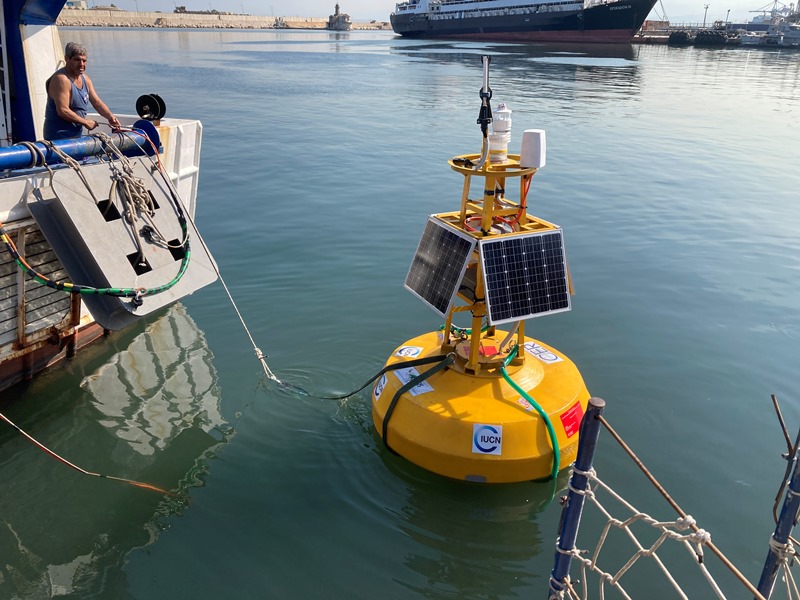Lebanon’s National Council for Scientific Research (CNRS) announced on Wednesday that its experts had deployed the first smart buoy in Lebanese waters.
The council said in a statement that the buoy – described as “a stationary water laboratory” – was deployed on August 14th in cooperation with the International Union for Conservation of Nature (IUCN).
The device is equipped with various sensors that constantly provide information about various indicators in seawater, such as temperature, salinity, turbidity, acidity, CO2 and O2 levels, and more.
It also includes a complete weather station, a submerged instrument for measuring currents and waves, and mechanisms for collecting and storing basic data, which it can store for a long period of time.

Its mission involves giving early warnings about coastal environmental events such as increasing sea level, changes in the sea’s water temperature, and tsunamis, according to the CNRS.
Additionally, the buoy can monitor the impact of climate change trends, such as fossil pollution, and increased CO2 levels in the atmosphere and the sea, as well as the direct effects of these changes on fish, biodiversity, and the coastal environment.
The buoy was made possible via a project that aims at monitoring oceanographic data and expanding the scope of efforts to conserve the marine environment in the Mediterranean Sea, funded by the Norwegian Embassy in Beirut.
The CNRS pledged to maintain permanent technical administration of the device, which is now located 1.4 km off the coast of Beirut, and to benefit from the environmental data that result from it, which will be shared with all concerned administrations.
